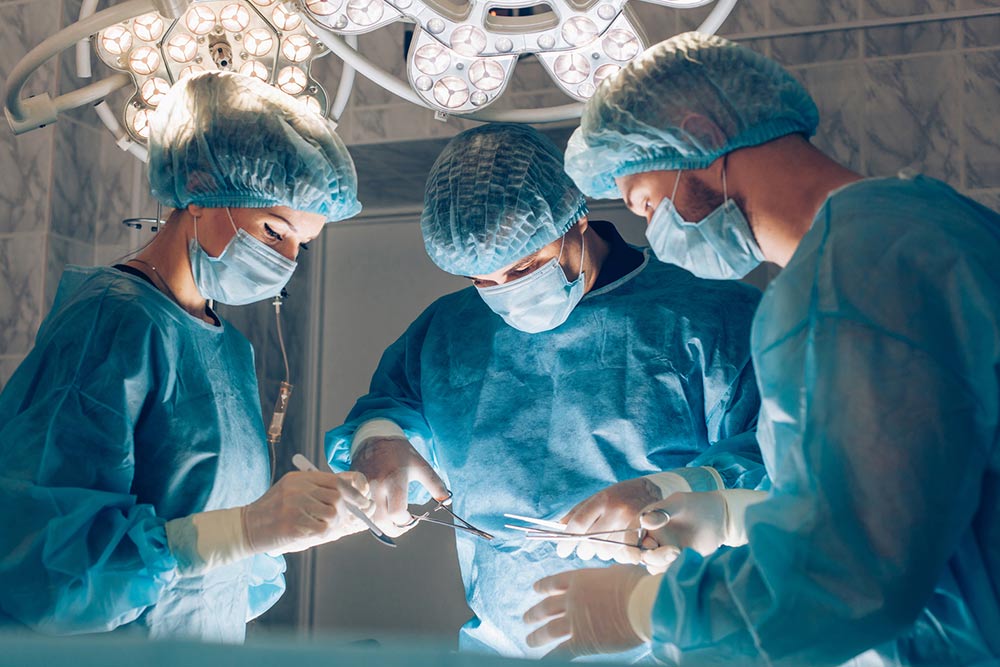5 Aspects of Breast Reduction Surgery
Breast reduction surgery (reduction mammaplasty) helps remove various elements from the breast, such as tissue and skin. The procedure is indicated for individuals with large breasts to ease discomfort. Those who opt for the surgery may also be able to participate in various physical activities. Before one signs up for the procedure, one must speak to a certified plastic surgeon to discuss all associated factors. Here are five aspects that the professional might discuss with the patient.

Who it’s for?
The reduction surgery is for people who have certain complications due to large breasts. These may include:
- Chronic rash or skin irritation under the breasts
- Nerve pain
- Chronic back, shoulder, and neck pain
- Shoulder grooves from bra straps
- The inability to participate in certain activities
One can have breast reduction surgery at any age, even in their teenage years (depends on the severity of the condition). However, during this time, the breast might not be fully grown, and the individual might require a second surgery in the future. Apart from this, there are other reasons one may need to postpone the surgery, including those who plan on having children and if one works with an expert to improve their BMI through lifestyle changes.
Pre-surgery steps
Before the procedure, a plastic surgeon may:
- Assess one’s healthcare history and overall health.
- Discuss the size that one wants their breasts to be and how they want them to look after the surgery.
- Discuss in detail the surgery, the risks and benefits, including scarring and potential loss of feeling.
- Examine and measure the breasts.
- Take photographs of the breasts to include in one’s healthcare records.
- Explain the types of prescriptions utilized to put one to sleep during the surgery.
Apart from this, a plastic surgeon may also require a mammogram before the surgery. The expert might ask the patient to make certain lifestyle changes for at least six weeks before and after surgery. Further, the individual may have to avoid various prescriptions to control bleeding. Most patients can go home on the day of the surgery. However, one should ensure they have someone to drive them home from the hospital.
Breast reduction techniques
The first step before performing a breast reduction surgery is administering prescriptions to ensure the patient is asleep and does not feel the pain during the process. This is done either in a hospital or outpatient healthcare center. During the procedure, the expert may follow different methods to reduce the size of the breasts. These include:
- Liposuction
The surgeon makes minor cuts in the skin and inserts a thin tube connected to a vacuum that suctions various materials, including fluids from the breast. The procedure is recommended for small reductions and individuals whose skin will fall back into place after the procedure. The method involves lower amounts of scarring in comparison to other techniques. - Vertical (Lollipop)
The procedure is recommended for moderate breast reductions and visible sagging. The healthcare professional makes circular cuts around the nipple area and then a straight cut down to the crease beneath the breast. The surgeon then removes additional fat and tissue, reshapes the breast, and lifts it. The resulting scar may look like a lollipop. - Inverted T (Anchor)
The surgery is suitable for larger reductions and people with excessive unevenness or sagging. The expert makes cuts around the edge of the areola, straight down to the breast crease, and horizontally along the crease underneath the breast. - Breast lift augmentation
During a breast reduction surgery, the expert may also raise the nipples and give one a breast lift (mastopexy). They may make minor cuts above the nipple and then stitch up the breasts and bandage them with a special gauze. After this, the surgeon attaches drainage tubes to remove additional fluid from the surgical site. One might need to wear the tubes for a few days before the surgeon removes them.
Recovery after the surgery
Following the surgery, one might find the breasts feel tender and may also be bruised and swollen. One may also need to wear a surgical bra that closes in front to support the breasts. Furthermore, the healthcare professional may recommend certain recovery steps for the first few days or weeks. These measures may include:
- Limiting physical activity for about 4 to 6 weeks to let the breasts heal.
- Wear a recommended surgical bra at all times to allow the breasts to heal and reduce swelling.
One should note that scarring fades with time, but one will need to set follow-up visits with the surgeon to check their recovery.
Costs
Many people look for search terms such as “the cost of the latest breast reduction surgery technique near me.” One should note that the amounts associated with any breast reduction procedure will depend on various factors. The surgeon’s cost may depend on their experience, type of procedure, and geographic location. One should bear in mind a few costs, such as fees for:
- Hospital or surgical facility services
- Healthcare tests
- Post-surgery garments
- Surgeon’s services
- Prescriptions
The average cost of breast reduction is about $7,000. The cost varies depending on one case to another. The procedure may also be covered by an individual’s health insurance plan. However, the plastic surgeon may have to seek approval from the insurance company. An individual should speak to their surgeon and insurance provider about any costs one might need to pay before and after the surgery.

